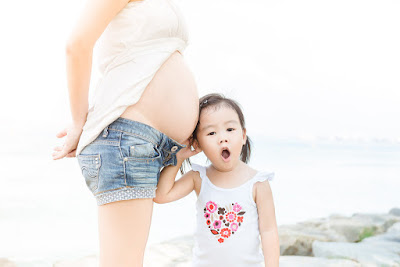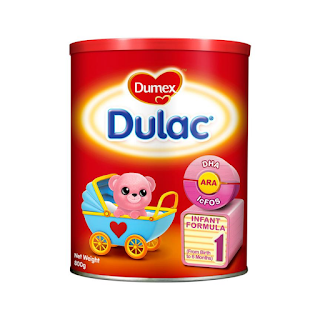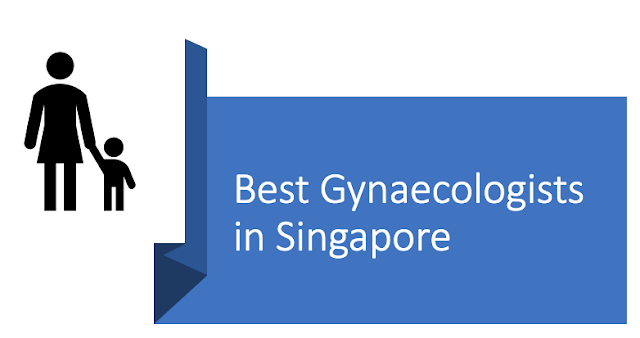Pregnant and worried about the new coronavirus?
How the coronavirus spreads
The virus spreads through respiratory droplets sent into the air when a person who has COVID-19 coughs or sneezes. It may also spread when someone touches a surface or object that has the virus on it, then touches their mouth, the inside of their nose, or their eyes. Current evidence suggests that the incubation period of the virus is anywhere from two to 14 days. It’s possible that someone could be infected but not have any symptoms (asymptomatic) and be able to spread the virus.

Hand-washing, social distancing, and other ways to help prevent the spread of coronavirus
What can I do to protect myself from catching the coronavirus?
The most important step is to practice excellent hand hygiene by frequently washing hands with soap and water for 20 seconds. Avoid touching your face, especially your eyes, mouth, and nose. Public health officials urge people to tightly limit gatherings and to stay home as much as possible. Social distancing is important to limit the spread of the virus. It’s safe to go out for walks — just try to remain six feet away from anyone who doesn’t live with you.
If you have a mild cough or cold, stay at home and limit exposures to other people. Sneeze and cough into a tissue that you discard immediately, or into your elbow, to avoid making others sick. Hydration and adequate rest also are important in maintaining the health of your immune system.
Can I travel for my baby-moon?
We recommend avoiding all travel at this time, given the concerns that the virus could be widespread, and changing travel restrictions (see CDC travel advisories).
Should I reschedule my baby shower because of the coronavirus?
While a baby shower is a joyous and important occasion, public health agencies such as the Centers for Disease Control and Prevention (CDC) recommend social distancing to limit the spread of the virus. Particularly in large gatherings, the risk of possible exposure and infection is quite high. We recommend limiting social gatherings at this time.
Concerns about becoming sick
What should I do if I have a fever or cough? What if I’ve traveled from a place where the virus is widespread or have been in contact with a person confirmed to have COVID-19?
The first step is to call your doctor’s office to inform them of your symptoms, travel, or contact with someone who has a confirmed case of COVID-19. Do not simply go to your doctor’s office. It is very important to limit the spread of the virus. Particularly if you have symptoms, it is best to call your doctor first to determine whether you need testing and/or to come in for evaluation. The American College of Obstetrician and Gynecologists has provided all obstetricians with an algorithm for how to manage pregnant patients who may have symptoms of COVID-19 or exposure to COVID-19, and your obstetrician may be able to help you triage your symptoms over the phone.
What is my risk of becoming very ill if I do have COVID-19?
Given that this is a novel virus, little is known about its impact on pregnant women. At this time:
- No evidence shows that being pregnant increases a woman’s risk for getting COVID-19, or her risk of developing severe symptoms if she has the disease.
- Experts think that pregnant women are just as likely as the general public to develop symptoms if infected with the new coronavirus. Current information suggests symptoms are likely to be mild to moderate, as is true for women (and men) in this age range who are not pregnant.
The United Kingdom declared pregnant women a vulnerable patient population. However, that statement is not based on any evidence demonstrating increased risk to pregnant women from COVID-19. With the flu, data show pregnant women are likely to experience more serious illness than the general population. Based on this data, some experts are advising caution and suggesting that pregnant women may be vulnerable to more serious illness if they get COVID-19. However, this is not based on any evidence from COVID-19 cases, but on historical data from other viral infections. Given the lack of evidence, we recommend that pregnant women continue to practice social distancing and excellent hand hygiene.
If pregnant women who are health care providers are concerned about their risk of exposure to COVID-19, we recommend that they discuss their concerns with their supervisor. At this time, no US guidelines restrict pregnant health care workers’ ability to care for patients.
Does becoming ill with COVID-19 increase risk of miscarriage or other complications?
An increased risk of miscarriage or fetal malformations has not been documented in pregnant women who are infected with COVID-19, according to the CDC. Based on data from other coronaviruses, such as SARS and MERS, the American College of Obstetricians and Gynecologists notes that pregnant women who get COVID-19 may have a higher risk for some complications, such as preterm birth. However, this data is extremely limited, and the infection may not be the direct cause of preterm birth.
If I become sick, what is the risk of passing the virus on to my fetus or newborn?
Currently, only small studies reporting on a limited number of cases are available to answer many questions, including this one. Most of the women in these case reports had COVID-19 during the third trimester of pregnancy.
- A study of nine pregnant women who were infected with COVID-19 and had symptoms showed that none of their babies was affected by the virus. The virus was not present in amniotic fluid, the babies’ throats, or in breast milk.
- Another study of 38 women infected with COVID-19 found that none of the newborns tested positive for the disease.
- Two case reports of infants born to mothers infected with SARS-CoV-2 demonstrated that the infants had elevated levels of antibodies to the virus but did not demonstrate any clinical evidence of infection with the virus (see here and here).
- Another case report analyzing 33 pregnant women infected with SARS-CoV-2 found that three of their newborns were also infected with the virus and had clinical signs of infection, as well as confirmation of COVID-19 infection. It is unclear whether these newborns were infected while in the womb or if these infections were acquired after birth, as the newborns were tested when they were days old. The possibility of vertical transmission (passing the virus from mother to baby) has not been ruled out.
The risk of passing the infection to a fetus appears to be very low. Currently there is no evidence of any fetal malformations or effects due to maternal infection with COVID-19.
If a woman has an infection with a high fever during the first trimester, it’s safest to use acetaminophen to lower temperature to avoid risk to the developing fetus.
Concerns about prenatal care, birth, and breastfeeding
Should I continue to have prenatal visits? I’m worried about being exposed to COVID-19.
Prenatal visits are important to ensure maternal and fetal health. However, given the current global pandemic we are facing, many obstetricians are either increasing the interval between visits or encouraging telehealth visits. Ask your obstetric health provider if you should buy a blood pressure cuff for use at home and monitor your baby’s movements. If you have any concerns about your health or your baby’s health, please call your obstetric team. We recommend that women talk to their obstetrician about their prenatal care and continue to attend appointments as long as their obstetrician feels it is appropriate.
I am worried that doctors, even obstetricians, will be diverted in an emergency setting and may not be available when I am delivering. Will that be the case?
Hospitals are responsible for making contingency plans for emergencies that might require diverting hospital staff. Ask your obstetric team about contingency plans at your hospital. They should be able to keep you updated on any change in plans. At our hospital, there is currently no plan for obstetricians to be redeployed. Obstetrics is an essential component of health, and it is likely that a physician trained in obstetrics will be present at the time of your baby’s birth. Ask your health care team about this.
I am worried about spending time in the hospital after delivery. Could this increase my risk of exposure to COVID-19?
Hospital staff and your obstetric team are trying to minimize the number of people who come to the hospital. There are rules to make sure that anyone who needs to evaluated for COVID-19 will be isolated from other patients. All medical staff are working hard to ensure that your risk of being exposed to COVID-19 is low.
In the hospital, many precautions are being taken to minimize exposure risks. If you choose to do so, it may be possible to go home sooner than you normally would after birth, as long as you feel well and your birth was uncomplicated. Talk to your obstetric team about this.
If I test positive for COVID-19, can I breastfeed my baby?
Currently, there is no evidence of the virus in breast milk. Given that the virus is spread through respiratory droplets, mothers should wash their hands and consider wearing a face mask to minimize infants’ exposure to the virus. The Royal College of Obstetricians & Gynaecologists recommends that mothers infected with COVID-19 express breastmilk to allow someone else to feed the baby. (Be sure to use proper hand hygiene and cleaning of breast pump parts.)
However, the CDC states that handwashing and wearing a face mask should minimize risks to the infant.
For more information about the new coronavirus and COVID-19, please see Harvard Health Publishing’s Coronavirus Resource Center.
Source: https://www.health.harvard.edu/blog/pregnant-and-worried-about-the-new-coronavirus-2020031619212
Read more:





Comments
Post a Comment